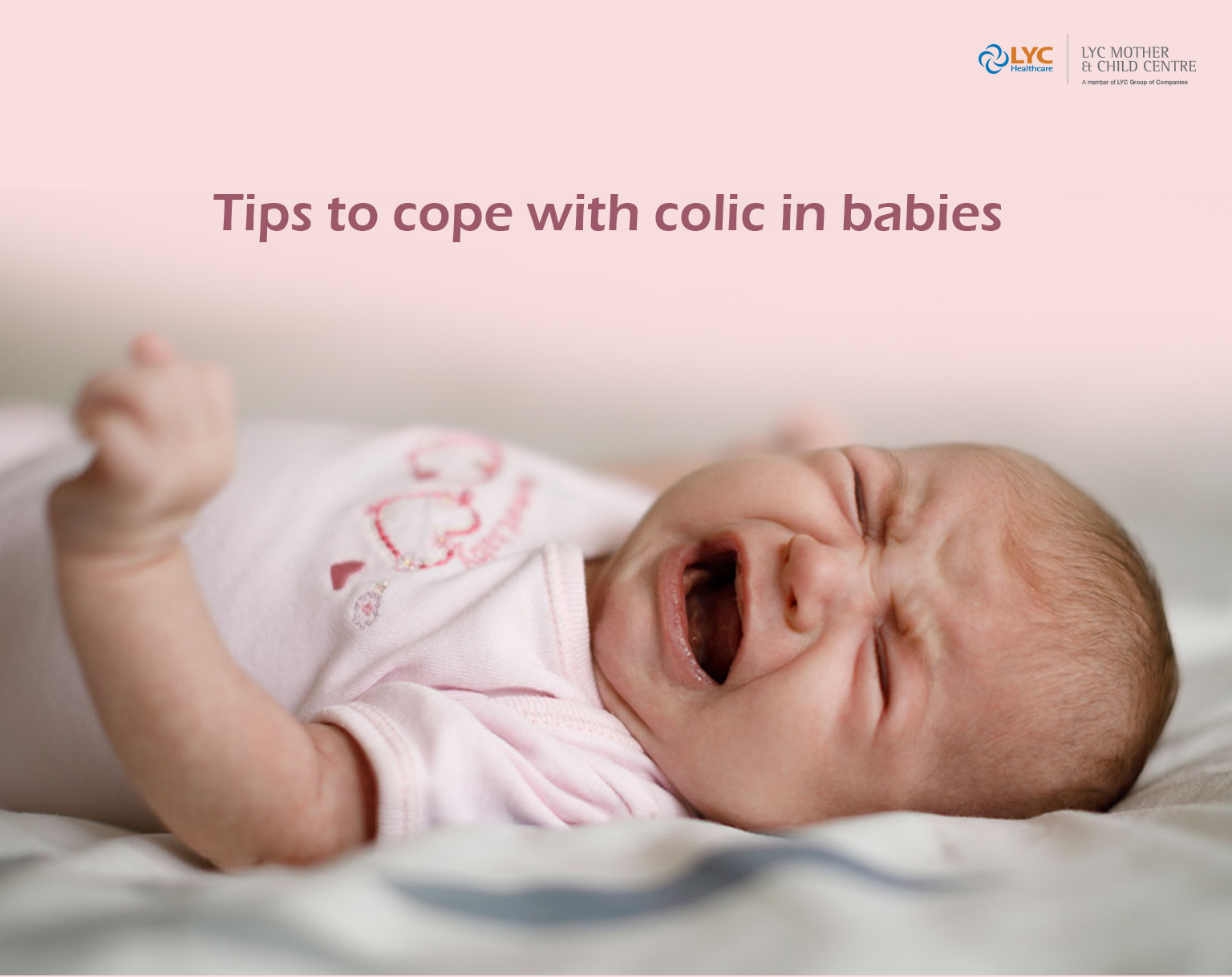Tips to cope with colic in babies

Since newborn babies are too young to communicate verbally, they usually cry to express their needs. There are many reasons babies cry, including being tired, hungry, cold, hot, or in need of a diaper change. If your baby continues to cry for a long time after being cleaned, fed, and cared for, it is most likely colic.
Colic can be defined as a healthy baby crying violently for no apparent reason, almost at least 3 hours a day, more than 4 days a week, which can be very frustrating for parents. Colic is a common condition in babies, and in the first few months of life, although your baby cries a lot, colic is neither dangerous nor harmful, so there is no need to worry too much.
Although there is no clear cause for colic, it will automatically improve as the child grows. Here are some factors that can cause colic:
- Overfeeding or underfeeding
- Pain or discomfort from gas or indigestion
- Overstimulation
- Sensitivity to breast milk or formula
- A digestive system that is not fully developed
Colic symptoms can also appear in a well-fed and healthy baby:
- Intense crying: Your baby cries suddenly for no apparent reason, and cries a lot, almost every day at a fixed time such as in the afternoon or evening.
- Excessive gas discharge: Babies with colic tend to expel a lot of gas as a result of swallowing extra air when they cry, or not releasing enough gas when burping after feedings.
- Irregular sleep patterns: Babies with colic may have irregular sleep patterns and sleep interrupted by intense crying.
- Posture: You may see your baby with clenched fists, knees drawn up, arched back, and tense abdomen.
When a baby has colic, the first thing to do is to have it checked by an experienced pediatrician to make sure your baby doesn't have any physical problems. This will put parents at ease, and make it easier to try various soothing methods.
When trying to soothe a colicky baby, it is important to keep in mind that every baby is unique, not all methods will work for every baby, and parents need to find out what works best for their baby. Here are some ways to help soothe a crying baby:
- Check to see if your baby needs a feeding, a diaper change, or if your baby is too cold or too hot.
- If you think your baby is hungry, or if the last feeding was more than two hours ago, offer breast milk or formula. Avoid overfeeding your baby and wait at least two hours before feeding again.
- Gently rock your baby's cot or help your baby stretch slightly, you can also hold your baby close as skin contact can help soothe crying.
- If your baby is crying while feeding, change to a different pacifier or bottle to help reduce the amount of air swallowed.
- Give your baby a warm bath or put a warm towel on your baby's tummy.
- White noise, soft music, or soothing sounds your baby is accustomed to on a daily basis can also help to soothe your baby.
- Turn off the lights and keep your surroundings quiet, too much stimulation can trigger crying or make the situation worse.
